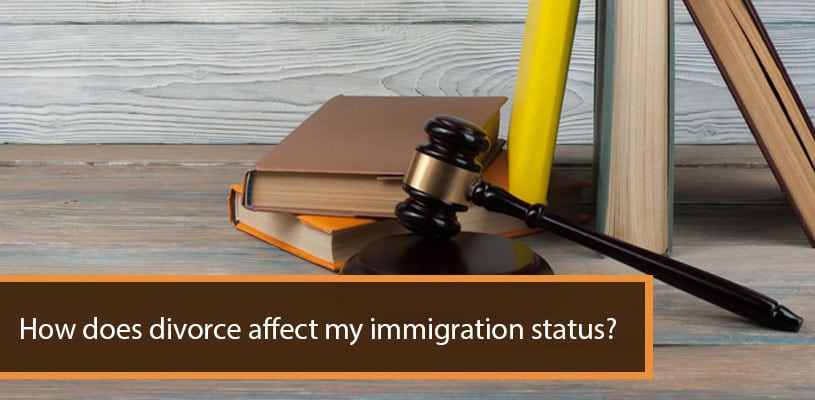Canada’s immigration policies help skilled immigrants to move to the country with their families. In that case, someone with a permanent residence in Canada can sponsor their partner to come and make a life in Canada. However, confusions arise when it comes to the matter of divorce.
As an immigrant in Canada, you often find legal procedures and consequences difficult to understand. Moreover, divorce in itself is a complicated and confusing process that is also emotionally draining. Keep reading to know more about how divorce can affect your permanent residence status in Canada and how you can resolve those problems.
Common Problems You Will Face During a Divorce
There are so many questions that come to your mind while thinking of going through a divorce in Canada. If you are an immigrant sponsored by your partner, what does a divorce mean in terms of your permanent residency? What happens if your marriage, as well as divorce, is certified by the law of your home country?
Well, the answers to these questions depend on your immigration status and for how long you are living in Canada.
Firstly, if your marriage is certified by the courts of your home country, the divorce will also be legalized by them. And, yes, Canada will recognize your divorce even if it is certified by your home country. But, how will this divorce affect your permanent residency in Canada? Will you lose your permanent residency if you get divorced?
Also Read- Sponsoring Spouse to Immigrate to Canada, Are you responsible financially?
Whether you are the spouse of a permanent resident or not won’t matter if you are also eligible for permanent residency. If you are not sponsored by your spouse, the divorce will not have any effect on your permanent residency.
However, if you are sponsored by your spouse who has managed to gain permanent residency in Canada, you might face some problems. What you can do to avoid deportation is to be a good taxpayer who obeys the law.
As many try to marry people with permanent residency only for the purpose of becoming one, Canada has set some conditions. You must be married for at least three years to be eligible for permanent residency.
How to Resolve Your Sponsorship During a Divorce?
Sponsorship means that your spouse has acquired permanent residency in Canada and can provide you with a living. However, after three years, you automatically become a permanent resident and can be employed by Canadian organizations.
After this three-year period, your divorce cannot affect your permanent residency as your immigration status is no longer connected to your spouse. And you can even marry someone again and in that case, your status will not be depending on theirs.
As you are living and working in Canada for three years, you are contributing to the economy of the country. Thus, you become a permanent resident by default. The only reason to deport you is if you commit any criminal offense.
Now you might be wondering how many days do you have to live in Canada if you want to continue to be a permanent resident. Obviously, you can move to your home country anytime you want. But to remain as a permanent resident, you must stay in Canada for at least 2 out of 5 years.
What Happens If You Stay Separated?
Separation is different from divorce. While you will be legally married, you can also stay separated. In sponsorship, the spouse will continue to be responsible for your financial needs for three years. However, it is not recommended.
Separation might show that you married only to become a permanent resident in Canada. That can lead to your deportation and we don’t want that.
The key takeaway is that before moving to Canada with your spouse, you have to make sure that you will stay together at least for 3 years. I can understand how ridiculous that sounds but from the legal perspective, that is the truth. Canada is strict against anyone who marries only to get permanent residency and you do not want to be one of them. However, if you have found your true partner, Canada is happy to welcome you.

